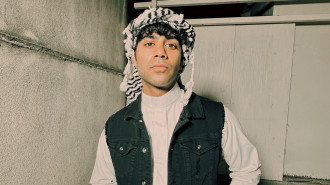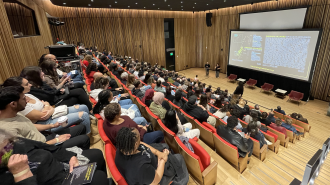Fears of increasing authoritarianism as snap elections called in Turkey
Erdogan set presidential and parliamentary elections for June 24, in a move that will usher in a new system consolidating the president's grip on power more than a year ahead of schedule. Turkey is switching from a parliamentary system to an executive presidential system after a narrowly approved referendum last year, in the wake of a failed 2016 coup attempt.
The changes take effect with the next election, which had originally been set for November 2019.
Still, the opposition parties sounded upbeat with the main opposition party's leader, Kemal Kilicdaroglu, promising that the June elections would bring "democracy" and "calm", and Meral Aksener, seen as the strongest candidate against Erdogan, vowing to send him home to rest after 15 years in power.
Observers say the early elections were called to capitalise on nationalist sentiment running high following a successful military campaign in Syria that ousted a Syrian Kurdish militia from a border region, in a decision fuelled by fears of an economic downturn ahead.
The changes, which include ballot boxes being supervised by government-appointed civil servants and being relocated at will on security grounds, "make it improbable for the opposition to win any general election in Turkey", Hakura said. "These really serious changes to the election law will, I think, make any serious challenge by the opposition highly improbable."
 |
A day after the snap election was called, the pro-Erdogan press seemed confident of the vote's outcome |  |
The call for an early vote also follows the sale of Turkey's largest media group, Dogan Holding, to a group close to Erdogan, further strengthening his grip on the country's media.
A day after the snap election was called, the pro-Erdogan press seemed confident of the vote's outcome. "Checkmate" headlined the pro-Erdogan newspaper Yeni Safak on Thursday, suggesting an early victory for Erdogan.
Deputy Prime Minister Bekir Bozdag compared the opposition to people "caught in a downpour in August, without an umbrella". Marhir Unal, a senior member of Erdogan's ruling party, said the latest opinion polls give Erdogan 55.6 percent support - which would allow him to win the presidential election in the first round.
The main opposition party, the pro-secular Republican People's Party has not yet announced its candidate. Its leader, Kilicdaroglu, on Thursday didn't rule out an alliance with parties "that support democracy and oppose a one-man regime".





 Follow the Middle East's top stories in English at The New Arab on Google News
Follow the Middle East's top stories in English at The New Arab on Google News


